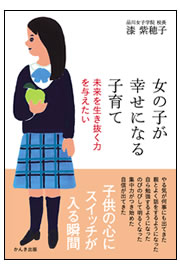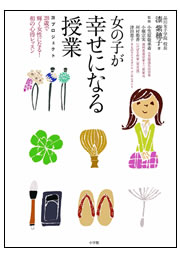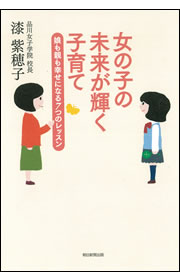リチャード先生からのメッセージ
昨日は体育祭でした。この様子は写真が来てからご紹介しますね。今日は全校一斉の健康診断です。
さて、今年も品川ファミリーのみなさんのお手元に昨年のイヤーブック「品川ファミリー」(理事長命名)が届きました。そこに寄稿していただいた英語のリチャード先生からのお手紙をご紹介します。
リチャード先生は早稲田大学でも教えていらっしゃるので、そこでの卒業生の様子を、すぐに品女と分かるとおっしゃっています。
リチャード先生はお父様がフランス人、お母様がイギリス人で王室の親戚。小さい頃はお城育ちだったそうです。エリゼ宮の前で美術サロンをなさっていたおばあさまの元にはピカソなど様々な芸術家が訪れたとか。ソルボンヌ大で医学を学んだあと、建築家だったお父様と訪れた日本に魅せられ、ロンドン大で日本文化を学ばれました。
その後、日本に渡り、銀行でお仕事をなさりながら、本校でも生徒達に授業をしてくださっていました。文化に造形が深く、日本文化は素晴らしい、フランス人は日本を尊敬しているといつもおっしゃっていました。(東洋医学も学ばれて、外国人で始めて鍼灸師の資格も取ったそうです)
本校にいらした20年前はいたずらな生徒が多く、「この学校では授業中お菓子を食べてもいいんです」と言われたそうです。そういうルールなのかと我慢していたら、ついには、ストーブの上でピザを温める生徒まで出て、いくらなんでもおかしな学校だと思って同僚のケリー先生に相談したところ、だまされていたことに気づいたそうです。(その子達も、もう親になっています)
リチャード先生が翻訳し、映画化もされた『60代のラブレター』は図書室にあります。
Hats off to “Shinajo”!
I was walking recently toward the Okuma Auditorium of Waseda University after giving my last lecture of the day, when I suddenly heard a bright female voice calling “Richard-sensei!” in my back. Only Shinagawa Joshi Gakuin graduates use my first name to address me. She was now a Waseda University freshman who said she wanted to take one of my classes in the next academic year. I was delighted to hear that. Even if I no longer teach there, Shinagawa Joshi Gakuin is never far from my mind. As for my former Waseda University students now teaching at Shinagawa J.G., they always call me by my last name. It makes it easy for me to know who is who!
As the eldest of four boys, with my mother being the only female at home, and having attended nothing but boys’ schools, I was not familiar with girls’ psychology. When I began teaching at Shinagawa J.G., I had trouble because I could see that where a suitable amount of leadership works with boys, it is not enough for girls.
At my first class of the year, when I entered the classroom, I felt uneasy being observed by so many female eyes… I knew that if the first impression I gave were bad, it would “stick” to me for the rest of the year, so I made a big effort to get a feel of the atmosphere, and adjust myself to it. Since no one likes to be ignored, I made it a point to look at every student in the eye.
It took time, but little by little, going to teach at Shinagawa Joshi Gakuin turned from challenge to fun.
Using the textbook as reference, I injected in English as often as possible my own opinions, and shared personal anecdotes. As such times, the students would listen to me intently, making their best effort to understand what I was saying. Through the various reactions thus provoked, we were able to enjoy cheerful, fruitful communication.
Shinagawa Joshi Gakuin is a school that stimulates curiosity and promotes self-confidence among its students. For instance, overseas home stays are sponsored; a number of students come from abroad, not to mention the foreign assistant teachers at the School.
Likewise, importance is placed on traditional Japanese culture, be it Ikebana, Kimono, Tea Ceremony or Japanese cooking that are all taught by top specialists in their respective field. The balance thus achieved helps students gain not only an understanding of both overseas and Japanese cultures, but also enjoy confidence, as well as joy and pride in being Japanese.
Another memorable feature of the School is the absence of an outside gate. Naturally, this does not mean that anyone can enter freely, but in the entrance hall, both the Principal, Ms. Shihoko Urushi, and the Administrative Director, Mr. 邦臣Urushi, greet personally every student and teacher. The warmth of the Director and cheerfulness of the Principal spread a quiet sense of security throughout the entire school.
Although I am no longer teaching there, I remain deeply grateful for the opportunity I was given to be part of Shinagawa Joshi Gakuin for close to twenty years. I think of myself as still being a member of the “Shinagawa Family”.
In concluding, I take my hat off to “Shinajo” for nurturing women with a sense of confidence, thereby contributing in a meaningful way toward the future of Japan and its society.
 伸びる子の育て方
伸びる子の育て方 女の子が幸せになる子育て
女の子が幸せになる子育て 女の子が幸せになる授業
女の子が幸せになる授業 女の子の未来が輝く子育て
女の子の未来が輝く子育て